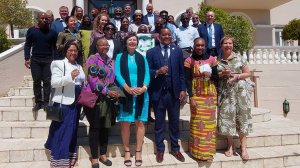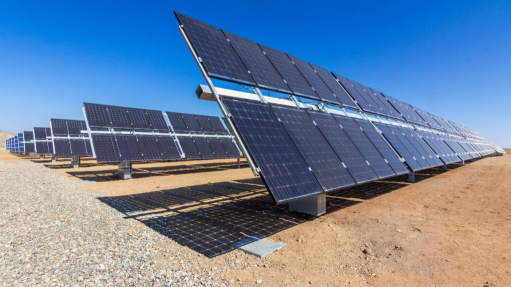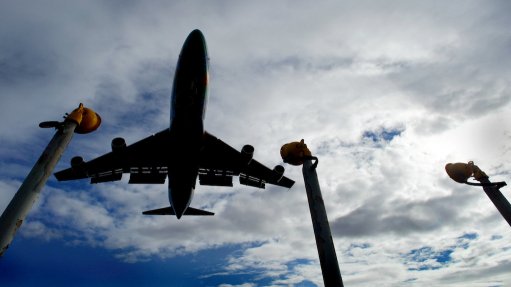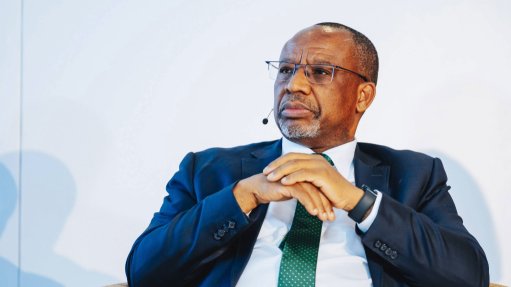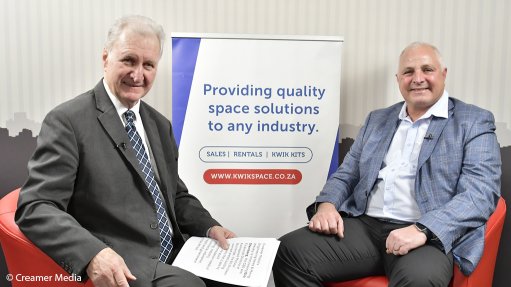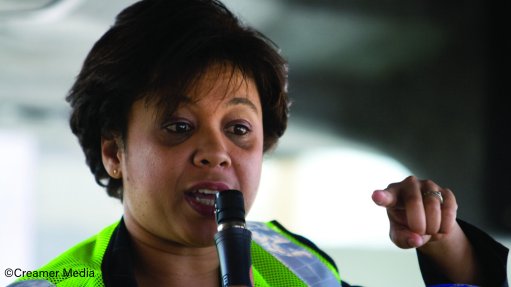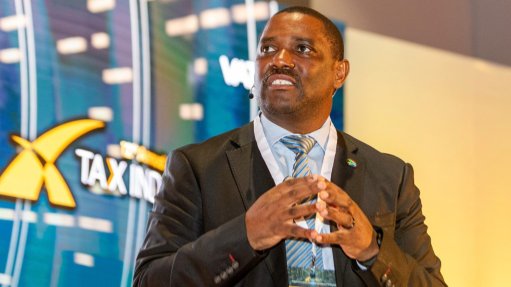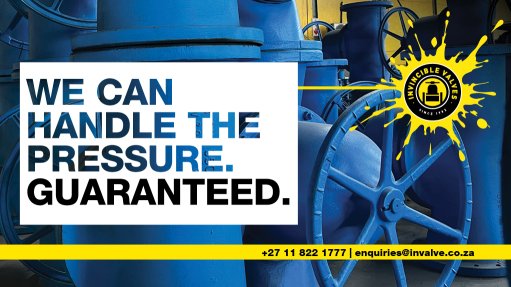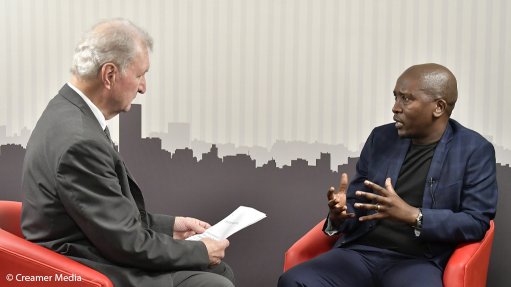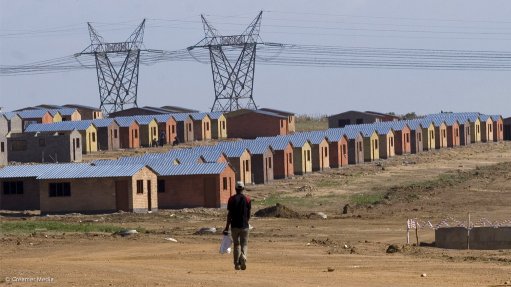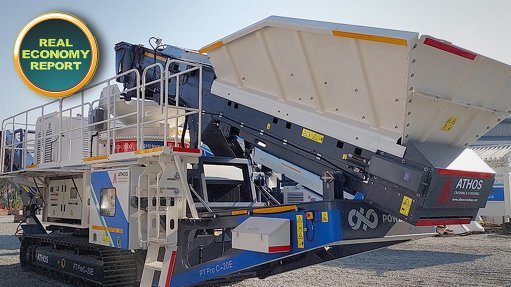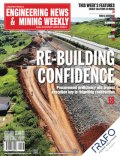Finnish Embassy launches funding for circular economy, good governance projects

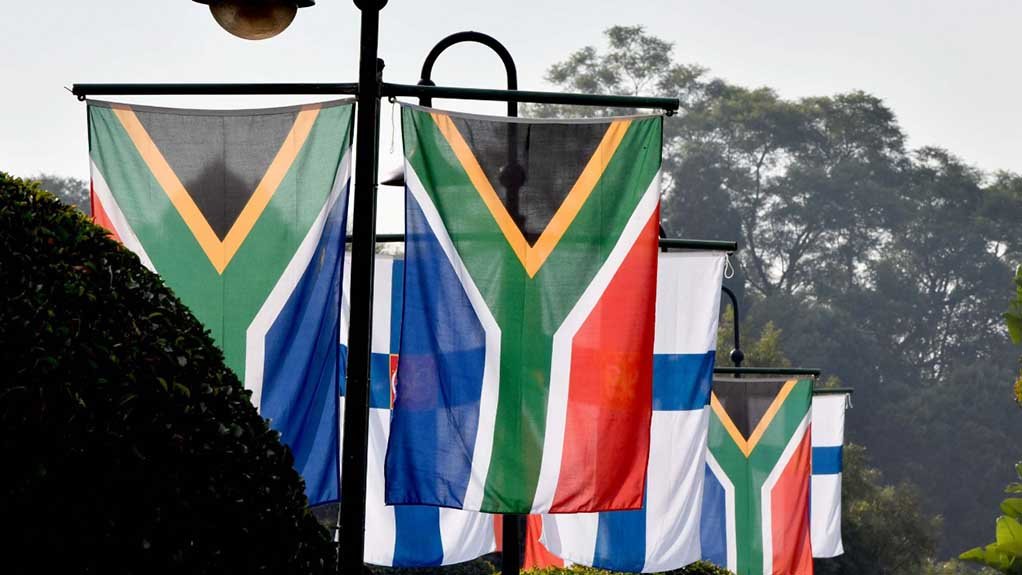
In this video, Finland Ambassador Anne Lammila and Good Governance Africa CEO Chris Maroleng speak about the support offered by Finland’s Fund for Local Cooperation for female-led circular economy and good governance projects.
The Embassy of Finland has launched its support for several South Africa-based projects – two circular economy projects and two projects focused on promoting good governance under its Fund for Local Cooperation (FLC) – with a focus on supporting female-led enterprises.
"Being a startup entrepreneur working in a not-so-well-understood field like the circular economy is not always easy. It's even harder for female entrepreneurs. Studies have shown that it's more difficult to raise funding in female-owned and -led technology startups," Finland Ambassador Anne Lammila said on September 15 at the launch event hosted at the Embassy of Finland in Pretoria.
The two female-focused circular economy entrepreneurial entities supported by the FLC are Womhub, which is a boutique pan-African incubator for female founders in the science, technology, engineering and mathematics sectors, and the female entrepreneur support platform Future Females.
Lammila said the circular economy provides a solution for addressing the problems caused by the linear "take, use and dispose" economic model that has led to the overuse of natural resources, posing a threat to global biodiversity and causing climate change through increased emissions.
"A change in the economic model is needed. Opportunities for economic growth and jobs arise through innovative activities that are required to change the way we produce, consume and manage waste," she said.
In addition, the FLC launched its support for the Endangered Wildlife Trust (EWT), which has allowed the organisation to launch a new website geared towards strengthening the governance of natural resources in South Africa.
"It focuses on making it easier to access information within the complex legal and governance framework related to natural resources. It will also contribute to the capacity building of officials within the environmental governance system," Lammila said.
EWT wildlife and law project manager Ashleigh Dore explained that, for any given natural resource decision, there are upwards of three to four pieces of legislation governing it, along with two to three government departments that need to make decisions related to an application.
"What this has created is a minefield for South Africans to try and navigate. This is in addition to the challenge that our legislation is primarily promulgated in English only. If your mother tongue is one of our other official languages, your ability to understand and navigate the very complex legislative field is then reduced even further," she said.
Dore explained that the project's goal, supported by the FLC, would be to ensure that the South African public and conservation officials are empowered to act responsibly by providing easy access to relevant, current and reliable information on the country’s environmental goals.
“We will do that through two key outcomes. The first is access to easy-to-understand information, which we hope will lead to greater engagement and compliance for the African public. And the second is that permitting officials are empowered through critical environmental and legal skills development,” she explained.
The FLC also launched the Town Action Network (Tan), which is an initiative of the Western Cape Economic Development Partnership (WCEDP).
According to WCEDP project lead Nobungcwele Mbem, Tan is an action-inspired nationwide learning and support network that connects changemakers and fosters local partnerships across sectors to support the regeneration of Southern African small and intermediate towns. This aligns with the small town regeneration strategy, she explained.
“Many municipalities in South Africa are suffering from [the impacts of] corruption and mismanagement, leading to inadequate service delivery to their residents," Lammila added.
"We want to create systems to make sure that the mobilising environment and the authorising environment connect, and that we're able to amplify the voices that need to be amplified and implement the processes that require implementation," Mbem said.
The FLC, first launched in 2020, is a fund administered by the Embassy of Finland in Pretoria. The fund supports initiatives of local non-governmental organisations (NGOs), science and technology communities, universities and other educational and research institutions, independent media, public corporations, and cultural institutions, chambers of commerce and commercial associations, organisations in the area of export and investment promotion, businesses, cooperatives, interest groups of companies and employees, foundations and religious organisations.
"The FLC is one of those transformative and impactful programs that is directly linked to governance. This fund, with its unwavering commitment to good governance and the circular economy, is more than just a financial resource.
“It is, for us in South Africa, at this time, a beacon of hope. It is programs like this that have a transformative effect that we must support," Good Governance Africa CEO Chris Maroleng said.
Lamilla added that good governance was at the heart of the Finnish Embassy's development policy and a natural focus area of its FLC work in South Africa.
"Corruption and misuse of funds are obstacles to development and the realisation of human rights. Societies need transparency to act against corruption. Good governance and strong and independent civil society organisations are essential for well-functioning societies. South Africa has a very vibrant civil society, which is like a counterweight to what the government does," Lamilla said.
Maroleng said it was through initiatives like the circular economy, and through systems of good governance, that South Africans could ensure that the country's abundant resources increasingly became "the blessing that they should be, and not a resource curse".
Comments
Press Office
Announcements
What's On
Subscribe to improve your user experience...
Option 1 (equivalent of R125 a month):
Receive a weekly copy of Creamer Media's Engineering News & Mining Weekly magazine
(print copy for those in South Africa and e-magazine for those outside of South Africa)
Receive daily email newsletters
Access to full search results
Access archive of magazine back copies
Access to Projects in Progress
Access to ONE Research Report of your choice in PDF format
Option 2 (equivalent of R375 a month):
All benefits from Option 1
PLUS
Access to Creamer Media's Research Channel Africa for ALL Research Reports, in PDF format, on various industrial and mining sectors
including Electricity; Water; Energy Transition; Hydrogen; Roads, Rail and Ports; Coal; Gold; Platinum; Battery Metals; etc.
Already a subscriber?
Forgotten your password?
Receive weekly copy of Creamer Media's Engineering News & Mining Weekly magazine (print copy for those in South Africa and e-magazine for those outside of South Africa)
➕
Recieve daily email newsletters
➕
Access to full search results
➕
Access archive of magazine back copies
➕
Access to Projects in Progress
➕
Access to ONE Research Report of your choice in PDF format
RESEARCH CHANNEL AFRICA
R4500 (equivalent of R375 a month)
SUBSCRIBEAll benefits from Option 1
➕
Access to Creamer Media's Research Channel Africa for ALL Research Reports on various industrial and mining sectors, in PDF format, including on:
Electricity
➕
Water
➕
Energy Transition
➕
Hydrogen
➕
Roads, Rail and Ports
➕
Coal
➕
Gold
➕
Platinum
➕
Battery Metals
➕
etc.
Receive all benefits from Option 1 or Option 2 delivered to numerous people at your company
➕
Multiple User names and Passwords for simultaneous log-ins
➕
Intranet integration access to all in your organisation


